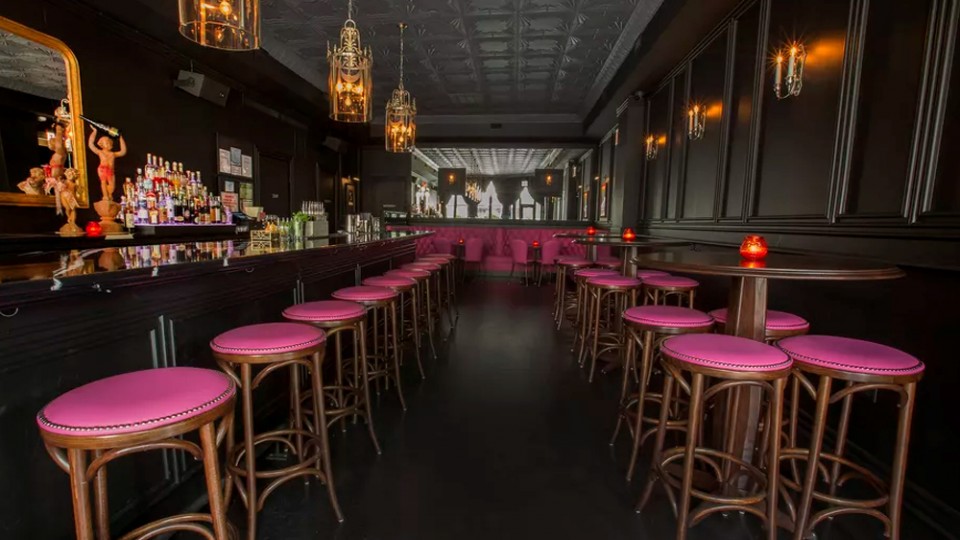
Jun 27, 2020
Eater Chicago | Ashok Selvam | June 26, 2020
Chicago watches as Texas and Florida closed its bars
Friday marks the first day Chicago restaurants can welcome on-premise customers since mid-March, and the mood is divided. There’s excitement from business owners and workers desperate for revenue. Diners suffering from cabin fever during the state’s stay-at-home orders happily booked tables on reservation apps. But others remain concerned while the novel coronavirus wreaks havoc. The Illinois Department of Public Health reported the disease has killed 6,847 people in Cook County.
Expect to see safety measures like plexiglass dividers, bottles of hand sanitizer, and QR Codes for customers to scan and read menus on phones. Restaurant managers are using disposable plates and silverware as they try to limit the virus’s spread. Health experts say outdoor dining is the safer choice. Chicago’s patios have been open since June 3, but on rainy days like Friday, it’s not an option. At least not without a tarp like these stylish customers at Avenue Tavern in Lakeview used Sunday.
Many restaurant owners have decided to wait. Gale Street Inn in Jefferson Park and Vito and Nick’s Pizzeria in Ashburn, are among restaurants delaying the reopening of its dining rooms. Many of the larger restaurant groups — Lettuce Entertain You Enterprises, One Off Hospitality Group, and Boka Restaurant Group — are opening dining rooms Friday.
The city and state are allowing restaurants to reopen at 25-percent capacity indoors. Face coverings need to be worn by workers at all times. Customers can take their masks off while seated. Tables have to be places six feet apart and there’s a maximum of 10 people per table.
Bars are also back in business in Chicago. Bars with food were allowed to operate with patios, but few have kitchens or patio space. A handful of bars — including Green Mill in Uptown, Love Street in Lincoln Park, and Butch McGuire’s in Gold Coast — are welcoming back customers. The city is limiting barflies to two-hour stays.
But there’s safety concerns for many. Brad Bolt, the veteran bartender behind Neon Wilderness in Wicker Park, won’t be reopening immediately. He’s targeting August 1. Bolt’s concerned for the health of his workers. He writes that peace of mind is worth “more than one measly month more of lost revenue.”
Those fears are seemingly prescient given what’s going on in Texas, Florida, and Idaho. On Friday morning, Texas Gov. Greg Abbott once again closed all bars after the state saw a surge in COVID-19 cases. Restaurants also took a stop back in Texas and will have to reduce capacities.
That news resonated with Chris King. King’s worked in the Chicago hospitality for about a decade in a variety of roles including busser and server. He most recently worked at Lula Cafe in Logan Square. King is part of a group of about 90 industry workers that have organized since late May. Chicago Restaurant Workers has been meeting about once a week to work on ways to improve worker conditions. King, who is studying public policy and political science at University of Illinois at Chicago, has been following what’s going on in Texas.
“That should be a sign to Illinois that our bars should be shut down,” he says.
For the last week, restaurant workers have expressed anxieties about returning to work online. King says industry members who have been away since March 17 want to know what their workplaces look like presently. They want to know what’s been tweaked for safety. Managers have failed at sharing that information with workers, King says. That’s a byproduct of the city giving little notice to owners to a reopening date (Chicago made the announcement on June 19). That’s had a trickle down affect to workers. The city and state reopening guidelines are dense, and a week isn’t enough time — even with webinars — to expect workers to absorb new information. For instance, there’s no governmental guidance telling restaurants what do if a worker contracts COVID-19. Does the restaurant close for two days or two weeks for a deep cleaning?
“We’re valuing getting a breakfast burrito and PBR over people’s lives,” King says.
Piece Pizza — the Wicker Park brewpub known for New Haven, Connecticut-style pies — is booked for Friday and Saturday. Operating partner Bill Jacobs is excited to welcome back customers. While some restaurant owners have struggled finding employees, Jacobs senses enthusiasm from his. They’re an essential part of what makes Piece successful.
“I will tell you the vast majority are people who want to work,” Jacobs says. “They want to be here, they want to do their job.”
Jacobs is also concerned. In March and April, when Piece was open for carryout and delivery, he says his workers were extremely worried about risking their health. That convinced him to retain Dr. David Nayak as a consultant. Nayak is a practicing allergist-immunologist who studied at the Northwestern University. Jacobs met him years ago in a yoga class.
Nayak — who dabbles in podcasts — wants to help small businesses like Piece. He agreed to examine Piece’s operations. Nayak has also worked with Honey Butter Fried Chicken in Avondale and Paulie Gee’s Pizza in Logan Square. Nayak says his work is about creating an environment where people feel safe. They drill in the basics of using masks, social distancing, and hand washing. It’s repeating many of the steps restaurants should already be taking. Nayak says they draw up a floor plan to make sure folks have enough space in between each other and servers are less likely to run into customers.
“Owners are excited to get increased capacity, but it brings more challenges,” Nayak says. “As you bring in more customers, you increase the risk of transmission.”
Many restaurants are keeping employee health logs. They take their temperatures and make sure folks are healthy while at work. But that’s a lot for a business to shoulder. Some have griped about that, but Jared Rouben considers those responsibilities as part of good hospitality. At Moody Tongue Brewing Company’s South Side brewpub — where Rouben and staff debuted a new patio on Thursday — staff will have extra masks for customers who may wander from their table without one.
“That’s part of our job and we’re happy to do it,” Rouben says. “This is just our approach, hospitality is the backbone of our industry and I know it’s the reason I go out.”
CLICK HERE TO READ THE FULL ARTICLE
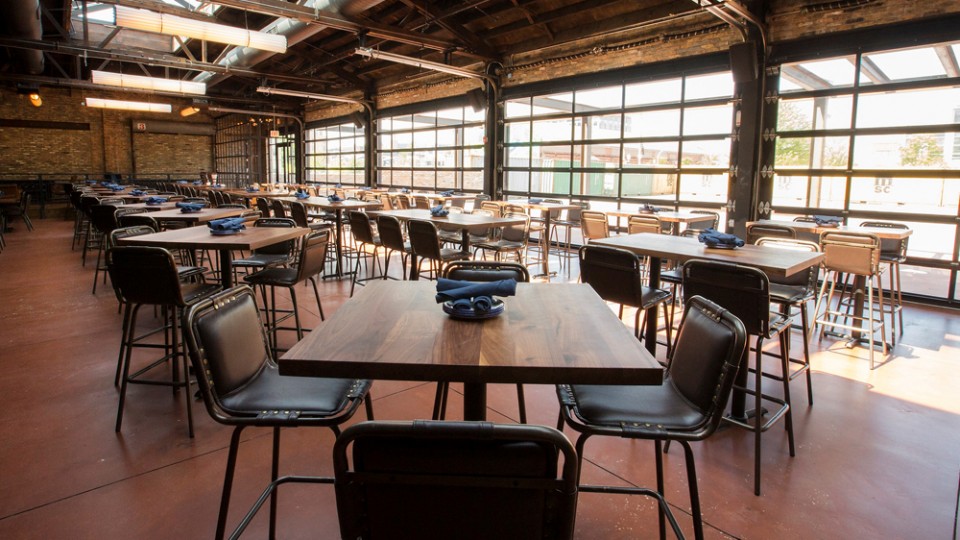
Jun 20, 2020
WGN9 | Erik Runge | June 19, 2020
CHICAGO — More restrictions are easing in Chicago amid the coronavirus pandemic. Bars, breweries and restaurants are allowed to have indoor drinking and dining in a limited capacity starting next week, Mayor Lori Lightfoot announced Friday.
On Friday, June 26, restaurants and bars will be able to allow indoor service at 25% capacity with a maximum capacity of 50 people per room or floor. This is also the day that the rest of Illinois should transition to Phase 4 of the governor’s Restore Illinois reopening plan.
Patrons must be seated at tables that are six feet apart with ten people or fewer per table. Seating at bars and breweries that don’t serve food will be limited to a maximum of two hours per party.
Alcohol sales at bars and restaurants for on-site consumption must still end at 11 p.m. each night, while the sale of alcohol for carryout or delivery must cease at 9 p.m. each night.
The decision to allow for some indoor dining and drinking comes as city health officials continue to monitor the positive trend in COVID-19 metrics.
For more information about the City’s “Protecting Chicago” reopening framework, and to find industry-specific guidelines, please visit chicago.gov/reopening.
CLICK HERE TO READ THE FULL ARTICLE AND WATCH THE VIDEO
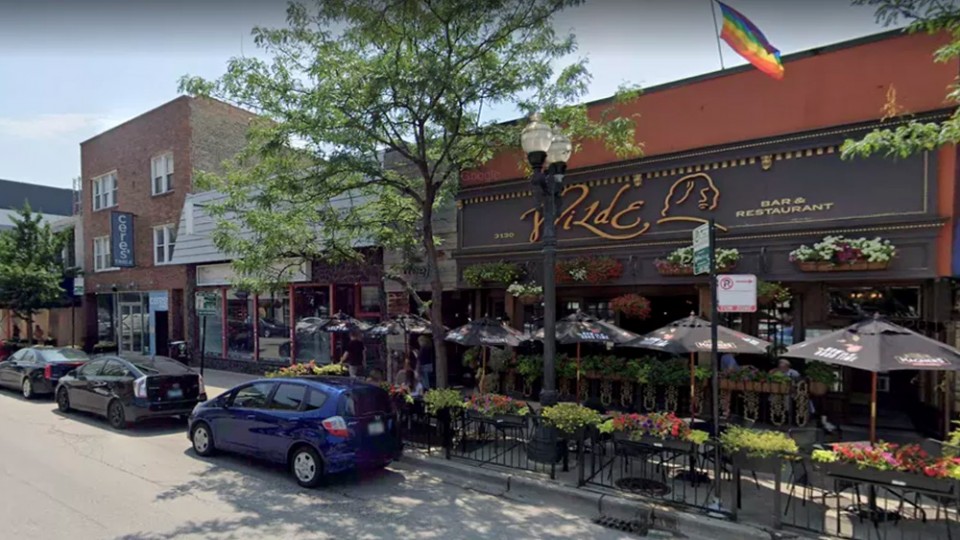
Jun 13, 2020
Eater Chicago | Naomi Waxman | June 12, 2020
Plus, the Chicago Riverwalk opens for some restaurants
Chicago’s open roads initiative kicks off Friday on Broadway Street in Lakeview, part of the “Make Way For Diners” program which intends to close six major streets to make room for restaurant tables and chairs. Though outdoor dining was allowed to begin last week, Lakeview East Chamber of Commerce executive director Maureen Martino said at the time that the city would probably push open roads’s pilot program to mid-June.
The program’s goal is to help restaurant serve customers as the city recovers from COVID-19. Health experts remain uneasy about indoor dining. There are 32 are participating restaurants so far in Lakeview. These include chicken wing destination Crisp, vegetarian and vegan cafe Fancy Plants, and sustainable Mexican restaurant Chilam Billam. Some Lakeview bars that serve food are also joining in, like DryHop Brewers, which is combining its menu with sister spot Roebuck Pizza, and Wilde Bar & Restaurant.
Lakeview’s weekends-only program closes the street for pedestrian traffic from noon to 10 p.m. on Friday and 11 a.m. to 10 p.m. on Saturday and Sunday on Broadway between Belmont Avenue and Diversey Parkway. It’s designed to remedy some of the strain coronavirus prevention efforts have placed on restaurants, creating more room for customers to socially distance while supporting the city’s hospitality industry during its brief and vital warm-weather months.
Other Chicago neighborhoods plan to close streets for the program as well. These include Chatham (75th Street), Gold Coast (Rush Street), Little Italy (Taylor Street), Little Village (26th Street), West Loop (Randolph Street). Other areas could be added.
And in other news…
The Chicago Riverwalk will be open Friday for the first time since March, but don’t expect restaurants to be ready for customers. The city made the announcement Thursday, but the riverwalk will be open with restrictions: folks will have to mask up and maintain social distancing, the Tribune reports. Some of the restaurants on the riverwalk will require reservations. A rep for the Northman (a cider-focused brewpub) tells Eater Chicago they hope to open next week as it prepares. Still, other spots will have walk-up service.
A Chicago couple plan to breathe new life into a 113-year-old South Side tavern that was once a Schlitz tied house at 9401 S. Ewing Avenue, Block Club reported. The site has been recommended for historic preservation status, and now awaits approval from the city council to become an official landmark. Owners Mike Medina and Laura Coffey Medina plan to open a neighborhood tavern with an adjoining yard for games like bocce ball.
CLICK HERE TO READ THE FULL ARTICLE
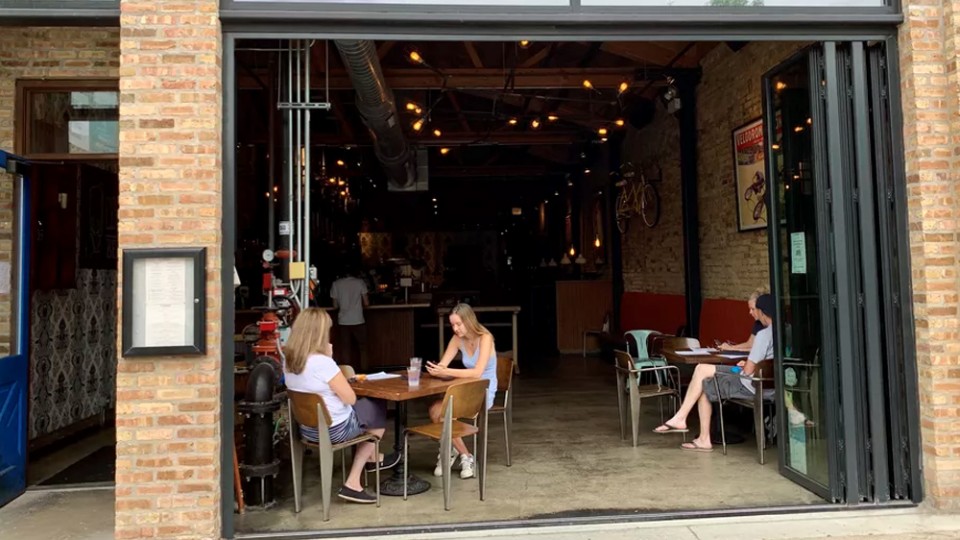
Jun 6, 2020
Eater Chicago | Naomi Waxman | June 3, 2020
Masked servers, beer in plastic cups, and plenty of sanitizer
Lakeview gastropub Corridor Brewery & Provisions was among the restaurants reopening for outdoor dining on Wednesday for the first time since mid-March. These restaurants and must abide by a litany of city requirements: tables must be six feet apart, parties cannot be larger than six per table, and customers must wear face coverings when they’re not eating or drinking. Self-serve drink stations are verboten, and waiting rooms are allowed to hold a maximum of 10 people.
The Southport Corridor restaurant stands across from a boarded-up Amazon Books location with its large front doors completely open, creating a wide channel between the indoor dining space and outdoor patio. Would-be diners and curious passersby linger in the in-between space looking around for direction from remarkably upbeat staff, who promptly pull them aside and lay out how it works.
- Masked customers are seated and provided disposable paper menus that outline food and beverage offerings
- They place orders at the sidewalk-facing bar inside the dining room and pay for their meal
- Diners then return to their designated outdoor table
- Servers deliver the order
- After customers depart, staff sanitize their table and chairs
Corridor has 12 patio seats across five socially-distanced tables (two and four-tops), plus eight more spots at two four-tops arranged just on the edge of the indoor dining space and sidewalk. That’s a drop from its original 90 seats.
A manager estimated that the restaurant had served around seven or eight tables by 12:30 p.m., and staff turned and served four more parties of two in the next half hour. Diners are provided with typical silverware and dishes, and beer is served in clear plastic cups. Interactions with servers are limited — staff transport food from kitchen to table rapidly and don’t hang around to chat.
All workers are masked, per the city’s mandate, but customers are allowed to remove their face covering once they’re seated. An amiable Corridor employee explained that he’d had to turn away a few people who showed up without a face covering, but said most have come prepared. When asked what he’d like diners to know, he requested patience and understanding, especially given the novelty of the scenario both workers and diners find themselves in.
The path to any kind of restaurant reopening has been fraught, down to the final moments before relaunch — ominous weather forecasts, concerns over potential looting and vandalism, and the taxing effects of days of protests over police brutality and the death of George Floyd lead some companies like Boka Restaurant Group and Lettuce Entertain You Enterprises to hold off on their reopening plans until Thursday or Friday.
Neither patrons nor restaurants should expect a return to so-called normalcy any time soon — rather, all will likely need to be prepared for some trial and error as operators wade into as-yet uncharted waters.
CLICK HERE TO READ THE FULL ARTICLE
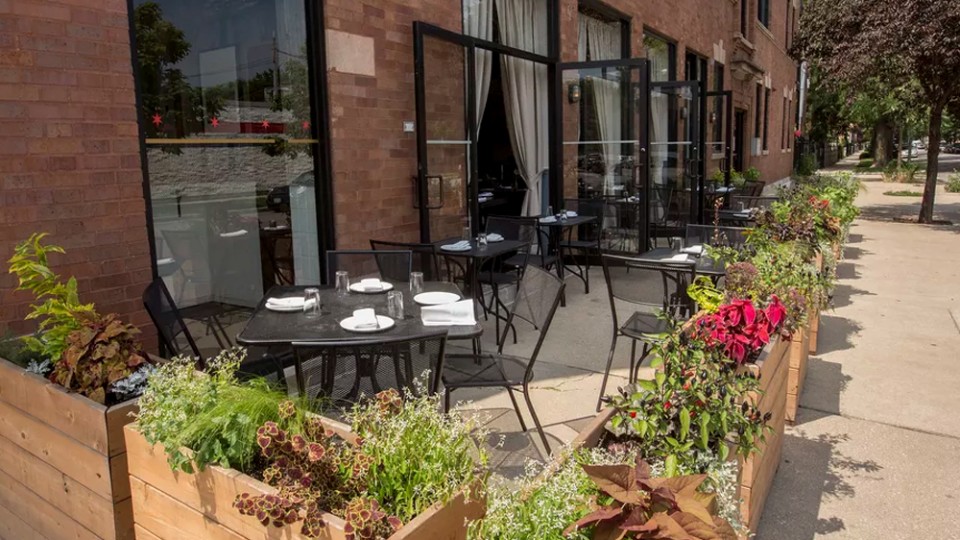
May 30, 2020
Eater Chicago | Ashok Selvam | May 29, 2020
Mayor Lori Lightfoot also says indoor dining guidelines are coming
Chicago Mayor Lori Lightfoot announced the city will block off six streets, including Randolph Restaurant Row, to motor vehicles for outdoor dining, giving restaurants more space to serve customers while abiding by social distancing guidelines. The city is calling its plan “Make Way For Diners,” and starting on Monday, restaurants owners can visit the city’s website to apply for these special outdoor dining permits.
Additionally, Lightfoot said she’s in onoing talks with Gov. J.B. Pritzker in regards to the return of indoor dining: “I’m hopeful that very soon we’ll be able to announce specific guidelines on indoor dining,” the mayor said.
When it comes to the “extended outdoor dining program,” Lightfoot said she consulted aldermen, the Illinois Restaurant Association, local neighborhood chambers, and business owners in picking the six locations. They were picked based on proximity to restaurants and impact on vehicular traffic.
The application process will start Monday via the city’s website. Outdoor dining permits are open to local chambers, business associations, special service area providers, and restaurants in groups of three.
Illinois Restaurant Association CEO & President Sam Toia called open roads a “pragmatic and crucial step forward” as restaurants move toward resuming indoor dining. 42nd Ward Ald. Brendan Reilly represents parts of the Loop, River North, and Streeterville. He was one of the City Council members who helped pick the streets.
“This is an important first step to prove we can operate restaurants in a safe and responsible way,” he said.
Lightfoot said more information will be released for interested applicants in the coming days. These are the six locations to be closed off for outdoor dining:
- Chatham: 75th Street (Calumet to Indiana)
- Lakeview: Broadway Street (Belmont to Diversey)
- Little Italy: Taylor Street (Loomis to Ashland)
- Little Village: 26th Street (Central Park to Harding)
- Rush Street (Oak to Cedar)
- Randolph Street’s side service streets in West Loop (West of the Kennedy Expressway to Elizabeth)
Randolph Restaurant Row is the most high profile of the bunch, home of trendy restaurants like Girl & the Goat, Leña Brava, and Bar Siena. The city is open to expanding the program to more intersections. Still, outdoor dining isn’t an option for every restaurant. For example, a spokesperson for ChowBus, a third-party delivery company that specializes in working with Chinese restaurants, said she didn’t think any of the company’s clients had patios. Wentworth Avenue could be a prime street for an open road in Chinatown, if traffic behaves.
But Lightfoot, as she’s known to do, warned Chicagoans that outdoor dining is privilege, one that could be revoked if residents don’t observe social distancing guidelines.
“We cannot allow these open streets to turn into street festivals and we will not,” Lightfoot said. “These are for seated dining only.”
The city also has continued to issue sidewalk patio licenses, as they’ve processed 400 so far this year. There are 400 pending, according to Department of Business Affairs and Consumer Protection Commissioner Rosa Escareno. She added that the permit process takes two to four weeks. But the city will expedite permits during the pandemic. Lightfoot said the city will waive patio permit fees, as the city wants to bring as many restaurants back as possible.
Toia is still pushing for indoor dining, repeating that outdoor dining won’t help all of the association’s members. That includes tavern owners. Bars that don’t serve food are excluded for outdoor dining and will remain closed.
“People, as we all know, lose their inhibitions when they’re drinking. It’s more difficult to follow social distancing guidance,” Lightfoot said.
In other booze news, the mayor also announced restaurants would be able to serve alcohol beyond the 9 p.m. cut-off period instituted in April. Stores would still have to abide by the curfew. Lightfoot said diners will able to take advantage of to-go cocktails sold by bars. To-cocktails won’t be legal in Chicago until mid-June, at the earliest. But this could lead to collaborations with restaurants and bars.
Stephanie Hart’s Brown Sugar Bakery stands along 75th Street, one of the six streets marked for outdoor dining. Lightfoot said she’s a big fan of Hart’s caramel cake: “Off the chain; great stuff,” the mayor said. Hart is pumped for next week.
“This is needed,” she said. “It is a time for us to start giving some hope to our community. I am so excited to see tables outside — it’s not perfect — there are no perfect solutions, but it is us getting the opportunity to move forward.”
CLICK HERE TO READ THE FULL ARTICLE
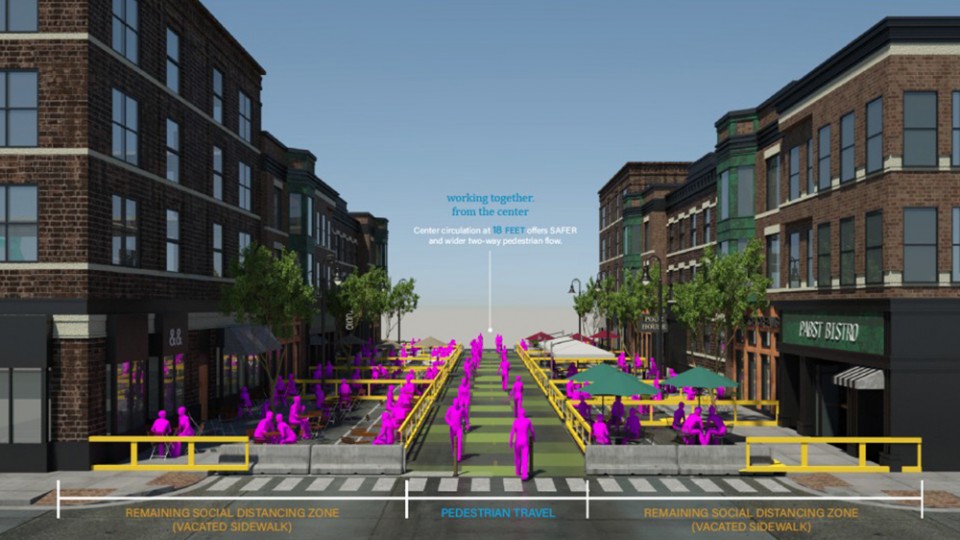
May 23, 2020
WBEZ | Elliott Ramos | May 21, 2020
Since the start of the statewide shutdown, restaurants have been permanently closing their doors one after another. So these businesses are pleading with officials to give them leeway to offer new ways of serving their patrons.
Last Wednesday, Gov. JB Pritzker threw restaurants and bars a lifeline, announcing that in Phase 3 they would be allowed to open outdoors provided they allow for social distancing.
“With the right restrictions, tables 6 feet apart and away from the sidewalks, masks and distancing measures for staff and other precautions, the experts believe that these services can open at a risk comparable to other outdoor activities and give our hospitality industry a much-needed boost,” Pritzker said during his daily COVID-19 briefing.
But how would that work? One Chicago architect believes design is the answer. Josh Pabst, an architect for RATIO, a design firm with offices in Chicago, has created a concept that could allow for outdoor dining on city streets.
Pabst’s idea is simple: Close selected streets to vehicle traffic and extend the sidewalk area to accommodate outdoor seating. Pedestrians would walk down the center, similar to the configuration Chicagoans are accustomed to seeing during neighborhood street festivals.
“I certainly wasn’t the first to think it or write it, but I thought it could use an architect to think that through and what that means, how that might look,” said Pabst, who does not work for the city and created these renderings pro bono.
Chicago is no stranger to outdoor seating, nor closing streets. The city has an extensive outdoor cafe program, which is a quintessential Chicago summer experience. Every year, restaurants must obtain permits, which are approved by the City Council and adhere to strict rules, which include barricades, ADA accessibility, and even having flowers and plants to mark their boundaries.
So, if the city were looking for a mechanism to implement such a plan, the cafe application process would be the easiest place to start: More than 300 permits have already been approved for this summer, according to data from the city’s department of Business Affairs and Consumer Protection.
“The street space offers a parallel to what the whole world is doing. The whole world is trying to balance the economy and health. And the street offers the opportunity to do both,” Pabst said.
Last year, nearly 1,200 restaurants and bars applied for sidewalk cafe permits. But, the program could be extended to the thousands more dine-in establishments in the city, many adjacent to sidewalks that have little space for tables.
“What’s unique about roads is they’re already paid for. The municipality has a tool in its pocket,” Pabst said.
In 2013, WBEZ reported that many of the city’s sidewalk cafes were clustered on the North Side, and that holds true today. Those businesses have a leg up on others because the streets have been modified to have wider pedestrian sidewalks through decades of streetscape projects.
Even so, the social-distancing requirement would cap the number of patrons they’d be able to serve with limited space. And restaurants without pedestrian-centric streets on the South and West Sides would likely need additional space to operate outdoors.
“I want to encourage municipalities and mayors who are interested in helping restaurants expand their outdoor seating options to do whatever is in their power and best fits their communities to help these restaurants,” Pritzker said.
Last year, the city’s Department of Transportation approved more than 600 street closures permits for festivals such as Market Days in Lakeview or Midsommarfest in Andersonville, and more than 4,000 additional closures for neighborhood block parties.
The city’s festival permitting process, which includes street closures, CTA reroutes, and the drinking beer and wine on public ways, could in theory be applied to an open streets concept.
“This is not the final solution, it’s something to talk about,” Pabst said. “We need engagement from the businesses and community.”
CLICK HERE TO READ THE FULL ARTICLE
CLICK HERE TO SEE THE FULL CONCEPT PLAN






